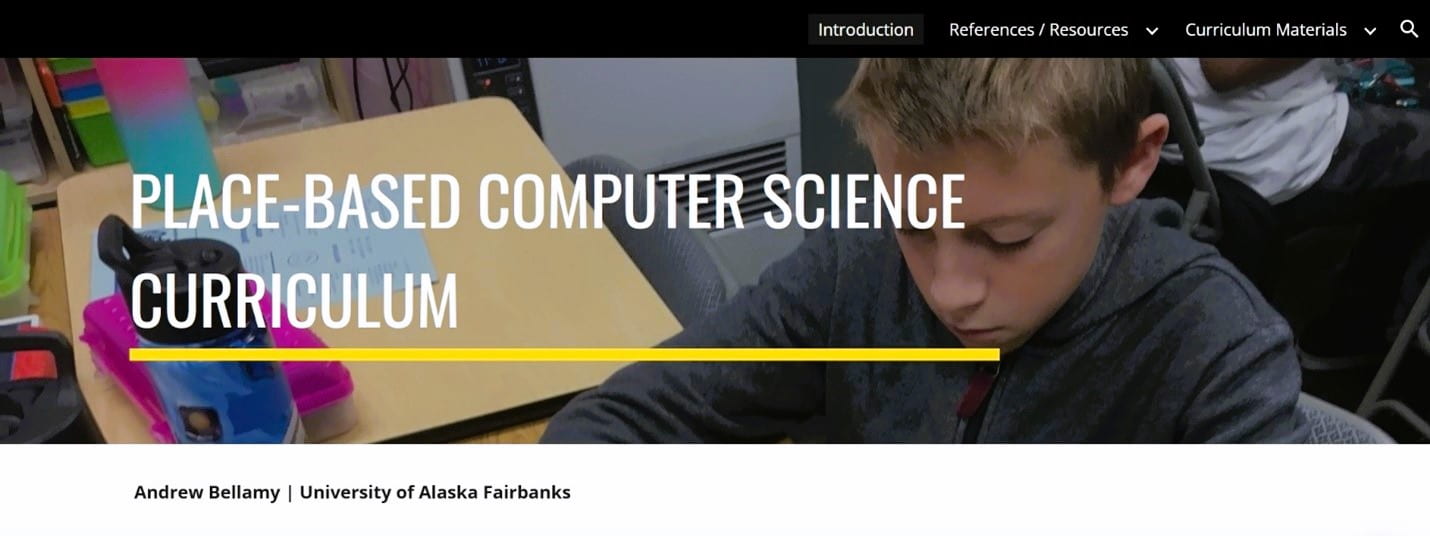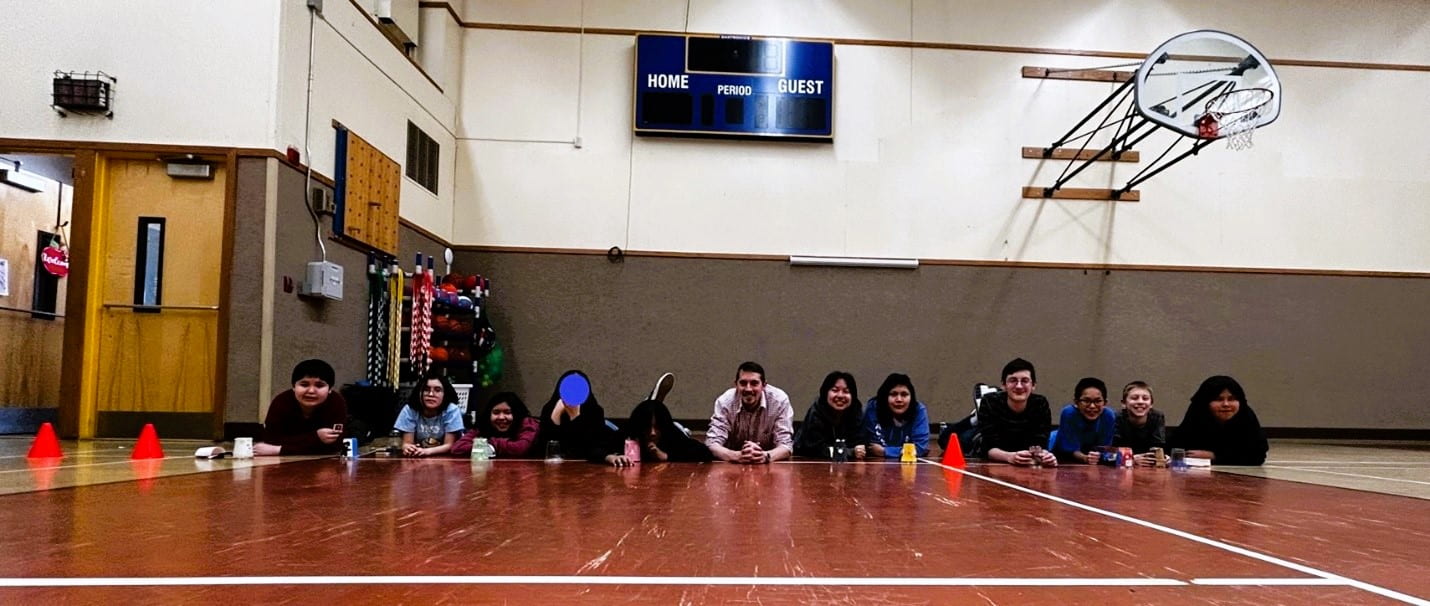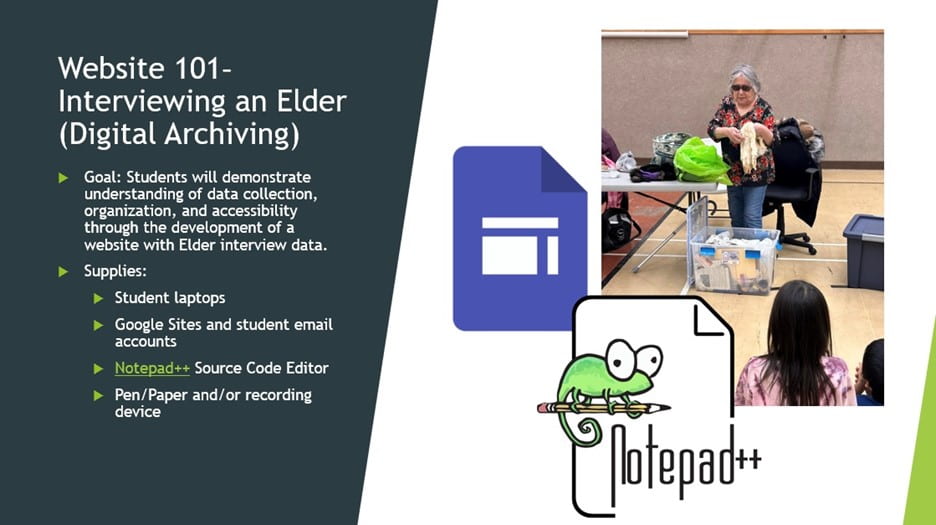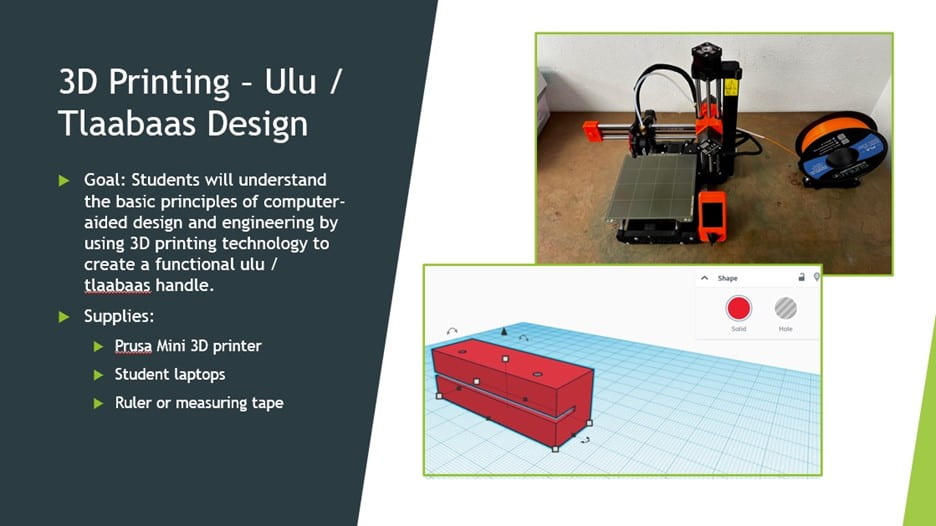 Place-Based Computer Science Curriculum Website: Place-Based Computer Science Curriculum
Place-Based Computer Science Curriculum Website: Place-Based Computer Science Curriculum
Place-based education is a philosophy that utilizes the context of student knowledge – culture, location, nature, and history – to connect to curricular and core content within the classroom. Despite numerous articles and studies on the merits of land-based and place-based education in rural Alaska, there is little information regarding a connection between the culture and ecology of this culturally rich land with a substantial computer science curriculum. One can find math modules, art and music units, and ELA lessons that attach to Alaska Native culture through a simple web search, but Computer Science has remained a subject that is primarily in the classroom and focused on materials that do not necessarily connect with the students’ lives outside of school.
It was my intention to help bridge this gap when I developed the following website; a Place-Based Computer Science Curriculum. The projects provided in this curriculum are specific to the Koyukon river region of Interior Alaska but can easily be adapted to other locations within the state. Each topic links a Computer Science area with a culturally significant activity or kinesthetic process, enhancing the relevancy of the material to the students’ lives. The curriculum materials provided on this website are as follows:
- Interview with an Elder – Digital Archiving and Website 101
- Beading Design – ASCII Artwork and Processing
- Instruction Processing – Algorithms
- Moose Hunting – Algorithmic Flowcharts
- Denaakk’e Language – C++ Programming
- Trap Line Monitoring – LED Indicators and I/O Circuits
- Fishing and Motor Controls – Arduino Microcontrollers
- Dog Sled Racing – Sphero Robots
- Tlaabaas Design – 3D Printing

These lessons were developed with the input of community members as to what subsistence and traditional activities are most pertinent within their culture. Likewise, student experiences and preexisting knowledge were taken into account when determining the subject matter of each unit. For the Computer Science portions, I drew upon my own technical background and Engineering experience, along with materials provided by the Yukon Koyukuk School District’s Career and Technology Education (CTE) department. “It takes a village” they say, and building this resource was no exception to that adage.

Regarding the Computer Science aspect of each lesson, many of the materials listed do require background knowledge on the educator’s part. Though tutorials exist for most of the programming and hardware involved (w3schools, for example), I hope to expand this resource by developing quick guides for those who may be unfamiliar with the specifics of the lesson. In essence, these lessons and units, as they stand, may act as an inspirational spark for other educators who are looking for some way to go beyond basic programming algorithms.

One of the greatest concerns, in my view, is that Computer Science ideas enter the classroom as novelties, or as I call them “Friday fillers”, with little to no context and, therefore, little to no consideration on the student’s part. As our world becomes more and more connected and technology dependent, rural Alaskan villages will undoubtedly adapt to this changing culture. Finding ways to marry technology with Alaska Native worldviews and traditional knowledge is becoming increasingly important, as noted by several community members that I interviewed. How we present technology to the students in a way that speaks to their current understanding, therefore, should be a major focal point. It is my hope that this curriculum acts as an inspiration for others to branch out and discover new ways to merge place-based learning with Computer Science concepts. Feel free to let me know your thoughts and any insights you would like to share by contacting me at abellamy@yksd.com.